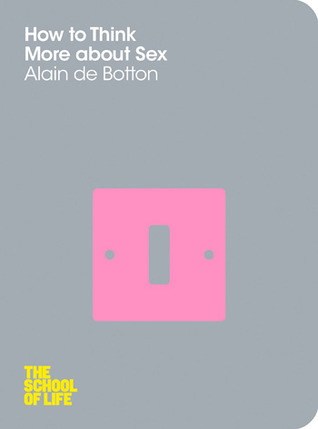What do you think?
Rate this book


144 pages, Paperback
First published May 1, 2012
Mayhap Alain de Botton is on to something here—to replace the usual vows and platitudes with something more cautionary, downbeat, pragmatic: “I promise to be disappointed by you and you alone. I promise to make you the sole repository of my regrets, rather than to distribute them widely through multiple affairs and a life of sexual Don Juanism. I have surveyed the different options for unhappiness, and it is you I have chosen to commit to.” And so, for example, upon the discovery of infidelity, the betrayed could more poignantly and justly cry: “I was relying on you to be loyal to the specific variety of disappointment that I represent.”
Spouses who remain faithful to each other should recognize the scale of the sacrifice they are making for their love and for their children, and should feel proud of their valour. There is nothing normal or particularly pleasant about sexual renunciation. Fidelity deserves to be considered an achievement and constantly praised – ideally with some medals and the sounding of a public gong – rather than discounted as an unremarkable norm whose undermining by an affair should provoke spousal rage. A loyal marriage ought at all times to retain within it an awareness of the immense forbearance and generosity that the two parties are mutually showing in managing not to sleep around (and, for that matter, in refraining from killing each other). If one partner should happen to slip, the other might forgo fury in favour of a certain bemused amazement at the stretches of fidelity and calm that the two of them have otherwise succeeded in maintaining against such great odds.
de Botton, Alain (2012-12-24). How to Think More About Sex (The School of Life) (pp. 167-168). Picador. Kindle Edition.